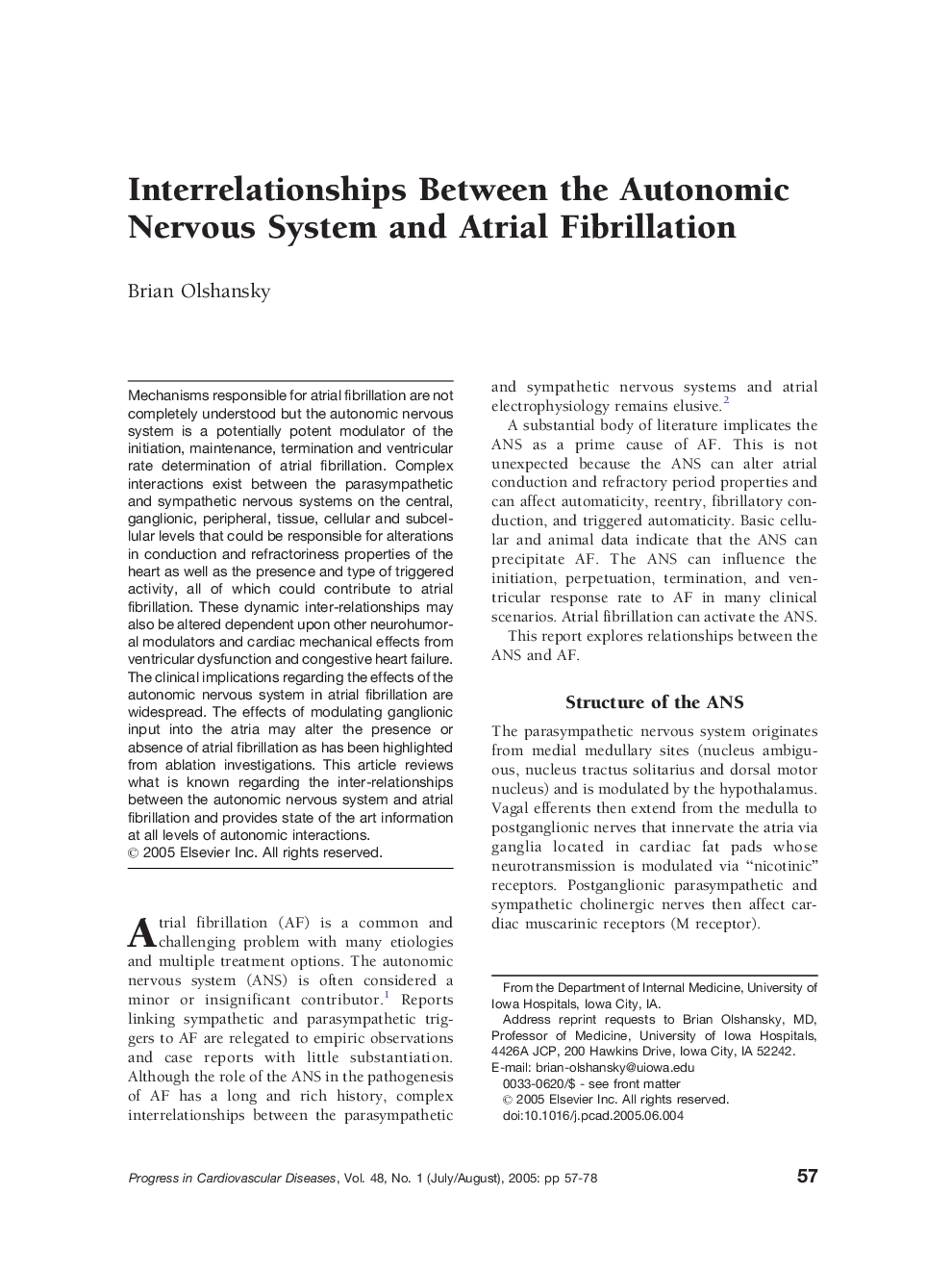| Article ID | Journal | Published Year | Pages | File Type |
|---|---|---|---|---|
| 9179004 | Progress in Cardiovascular Diseases | 2005 | 22 Pages |
Abstract
Mechanisms responsible for atrial fibrillation are not completely understood but the autonomic nervous system is a potentially potent modulator of the initiation, maintenance, termination and ventricular rate determination of atrial fibrillation. Complex interactions exist between the parasympathetic and sympathetic nervous systems on the central, ganglionic, peripheral, tissue, cellular and subcellular levels that could be responsible for alterations in conduction and refractoriness properties of the heart as well as the presence and type of triggered activity, all of which could contribute to atrial fibrillation. These dynamic inter-relationships may also be altered dependent upon other neurohumoral modulators and cardiac mechanical effects from ventricular dysfunction and congestive heart failure. The clinical implications regarding the effects of the autonomic nervous system in atrial fibrillation are widespread. The effects of modulating ganglionic input into the atria may alter the presence or absence of atrial fibrillation as has been highlighted from ablation investigations. This article reviews what is known regarding the inter-relationships between the autonomic nervous system and atrial fibrillation and provides state of the art information at all levels of autonomic interactions.
Related Topics
Health Sciences
Medicine and Dentistry
Cardiology and Cardiovascular Medicine
Authors
Brian Olshansky,
